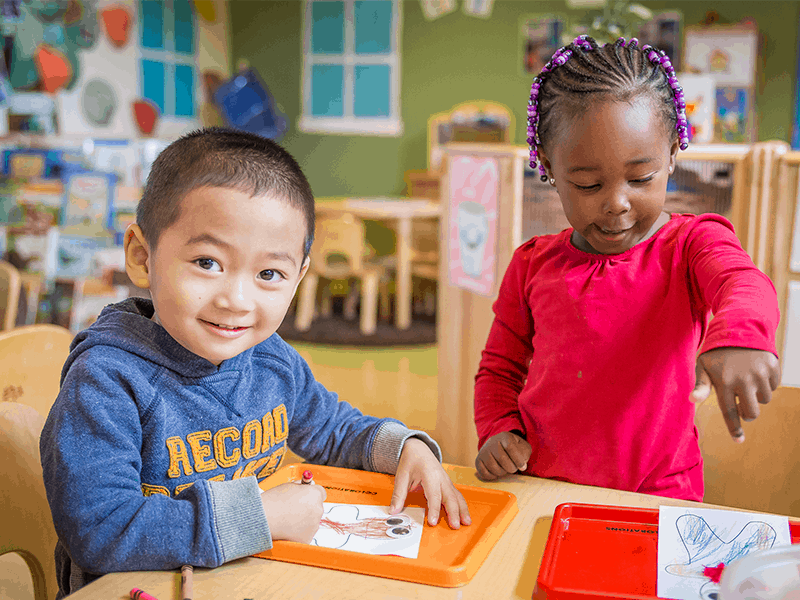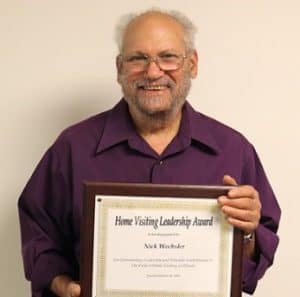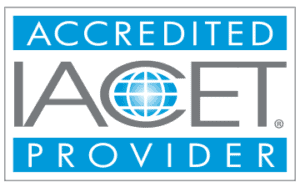COVID-19 has accelerated issues in our early education system that have been overlooked for decades. There has never been a better—or more critical time—for a U.S. Secretary of Education to chart their own course and boldly lead on early childhood.
The good news, addressing early learning and care is one of the few bipartisan opportunities for the incoming Biden administration. Polling from last year shows that early childhood education has broad support among Republicans, Democrats and independents. COVID-19 has shown that early learning and care is not a “nice-to-have”—it’s essential for children, families and our economy.
That’s why we are optimistic about President Biden’s choice in Miguel Cardona for U.S. Secretary of Education. Cardona brings two decades of experience as a practitioner in K-12 and has shown a commitment to equity and early learning, having served as co-chairperson of the Connecticut Birth to Grade Three Leaders Council. Additionally, his personal story is inspiring and reflective of the lived experiences of many of our early learners.
Many of the funding increases at the Education Department (ED) promised by the president during his campaign could allow states to meaningfully increase access to high-quality inclusive early learning programs and services, and we look forward to working with the new administration.
The new Secretary has an opportunity to provide the leadership needed to revise and improve programs, policies and funding streams managed by ED that impact the children and families we serve, including:
Aligning and coordinating early childhood work across the federal government.
As COVID-19 has illuminated, children and families rely on a complex fabric of supports to function and thrive, weaving everything from access to health care and broadband internet together. Similarly, the programs, policies, and funding streams that serve children from birth through age 5 and their families sit in multiple departments across the federal government.
Strengthening early childhood programs and supports won’t be the work of the Education Department alone.
Secretary Cardona will need to reinstitute strong collaborations between the U.S. Department of Health and Human Services (HHS) and other federal child and family serving agencies to ensure a seamless and comprehensive early learning system for families.
Increasing funding for Title I and ensuring states prioritize investments in prenatal-to-age-5 early childhood education.
Under Every Student Succeeds Act (ESSA), our nation’s education law, school districts (LEAs) can use Title I funds towards quality early childhood education. However, many haven’t done so, largely due to a lack of understanding on how to use or access these funds.Secretary Cardona has an opportunity to prioritize use of Title 1 funds for early childhood by providing clearer expectations and incentives for this use.
For one, like our K-12 students, our youngest learners face steep learning losses as a result of being out of the classroom for the past year. Studies have found preschool participation fell by half in some places, and few families have remained consistently involved in remote opportunities. When programs offered at-home learning support, most children participated less than once a week. As Title I funds are directed to support learning losses throughout the education system, programs serving children from birth through age 5 should be included as well.
Finally, while the potential increases in funding for preschool for 3- and 4-year-olds that President Biden has called for are exciting, even greater investment must be prioritized for infants and toddlers (and prenatally), to build a comprehensive prenatal-to-age 5 early learning system. We hope Cardona will champion these investments, even if they might happen outside of ED.
Ensuring school districts and community-based programs are set up for success to leverage Individuals with Disabilities Education Act (IDEA) funds to support our youngest learners with disabilities and developmental delays across a continuum of settings.
Despite programs and resources designed to support them, children with disabilities remain underserved by early care and learning programs. Cardona can ensure our youngest learners with disabilities and developmental delays have access to early care and learning programs that are designed and resourced to support them by fully funding the IDEA, permanently authorizing the Program for Infants and Toddlers with Disabilities (Part C of IDEA), and significantly increasing funding to the McKinney-Vento Homeless Education Program.
Including the unique needs of the early learning workforce in decisions around higher education financing, educator compensation and public service loan forgiveness.
The early childhood workforce was facing a crisis even before the COVID-19 pandemic. For years early learning professionals have been systemically underpaid and undervalued, creating a minimally trained workforce vulnerable to high turnover even as demand has increased.
Take the average child care professional. Despite having attained a bachelor’s degree in early learning and care to acquire the specific knowledge and skills needed to provide quality learning and care to our youngest children, she makes on average just $25,000 a year. She works for a private, for-profit child care center, making current options for student loan forgiveness unavailable. As she begins her own family, the pay won’t justify the expenses to find child care for her own children.
There are many ways Secretary Cardona could support a well-trained and well-paid early childhood workforce, including making Pell grants available for those interested in degrees in early learning and care or opening up student loan forgiveness to any child care worker regardless of whether they work for a for-profit or nonprofit child care center.


 Early Childhood Connector quickly brought together early childhood partners in a simple, judgement-free online community to connect with each other, share ideas, curate best practices and elevate work happening at the local, state, and national level in response to the COVID-19 crisis. The group provided a neutral location to host the most up-to-date COVID-19 resources and information including emerging community, state and national strategies.
Early Childhood Connector quickly brought together early childhood partners in a simple, judgement-free online community to connect with each other, share ideas, curate best practices and elevate work happening at the local, state, and national level in response to the COVID-19 crisis. The group provided a neutral location to host the most up-to-date COVID-19 resources and information including emerging community, state and national strategies.

